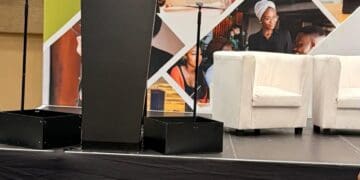For SMEs to keep their doors open and even thrive in what is often a tough economic environment, they must keep up with the constant changes in the economy and the marketplace, including the modernisation of the world of work. In the 21st century world of business, innovation and the pressure of living with constant change is no longer only the concern of large corporates. Even the smallest business needs a strategy to adapt to technology and new ways of working, otherwise, it will find its share of the market shrinking instead of growing, and its ability to attract top talent curtailed.
In South Africa, we have been slow to support our small and medium businesses in this area, while at the same time entrepreneurs have largely not been proactive at understanding what they can do to build innovation and technological agility into their businesses.
Changes to the dynamics of the workspace, especially following the Covid-19 pandemic, include a hybrid workplace model that mixes in-office and remote work, a greater focus on technology, and newer ways to find and interface with increasingly tech-savvy customers.
Many of these trends were the focus of Standard Bank’s annual SME Summit in partnership with Business Day recently. Some of the most interesting insights in the event were provided by economist, business trends analyst and ‘futurist’ Bronwyn Williams, who advises major businesses, governments and institutions such as the SA Reserve Bank.
The main takeaway from Williams is the idea that while the increasing digitisation of the business- and workplace favours larger businesses (because they can more quickly invest in the tools needed to transform the workplace), SMEs do have advantages that they can leverage to compete. Chief among these is their greater agility and flexibility, which help them appeal to younger, digitally-savvy, and more socially conscious employees.
This talent demographic demands more from the companies that employ their services. They favour employers that are ethically, ecologically, and developmentally in tune with their own worldview, and are quick to leave large companies whose business culture is rooted in the past, and whose practices don’t foster a culture of sustainability and social justice.
The global trend towards foregrounding environmental, social, and governance (ESG) factors is largely driven by this demographic and is an outcome of the growing power of this talent pool. But smaller businesses need to box clever. Nothing about these emerging trends naturally means they will win the competitive race against established businesses. Among the innovations SMEs need to embrace are the following:
- Creativity and flexibility around hybrid work models
- Increased focus on mental health and managing work/life balance
- Embracing sustainability and ethical values
- Rejigging employment benefits (such as leave and retirement planning) to align with the younger workforce’s changing needs and attitudes
- Fostering human interaction and collaboration even when companies embrace remote work systems
The post-Covid business and work environment is particularly different from anything we have known before, and often the changes affect companies unequally. More established and bigger companies can cope better. But smaller ones can innovate and move faster. They can do this not by throwing money at the problem, but by harnessing the innovative and creative energies of their people.



























































